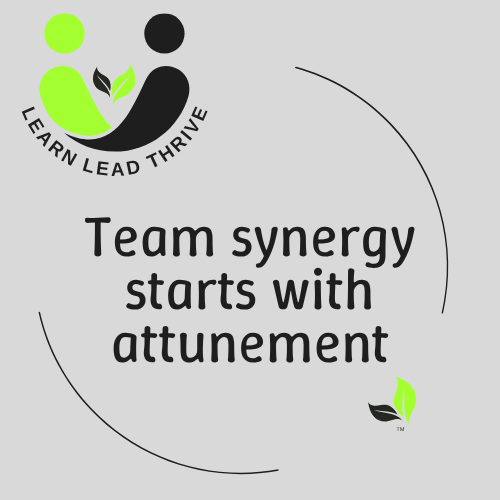Shared learning fuels shared success
- learnleadthrive

- Aug 10, 2025
- 2 min read
Updated: Nov 6, 2025
When teams learn together, they build reciprocal communication and workplace psychosocial skills learning to support growth in themselves and others.
This type of skill building is not task oriented or job specific but rather, it provides each person an opportunity to have input in building a safe learning space and of itself, is a sustainable learning practice.
Teams and individuals who are provided autonomy to co-construct their learning and growth gain:
🍃 Internal motivation (much stronger than external motivation).
🍃 Genuine connections with each other.
🍃 Begin to identify aligned perspectives, which assists aligned goals.
🍃 Are provided with real opportunities to navigate conflict and change within a small, controlled environment, before being expected to manage these skills on a larger level.
🍃 Cultivate a sense of self-confidence, self-awareness and a stronger sense of identity as an individual and belonging within a team.

Building genuinely collaborative teams for the individual and the whole team: reduces sick days, provides natural mechanisms for movement of workload, higher engagement of staff, fluid succession planning and workplace respect and compassion.
This type of dynamic refines team focus, creates organisational or business learning ecosystems and begins to build foundational leadership practices within the team for potential aspiring leaders.
Leaders who show their learning, rolemodel safe spaces for exploration and growth.
Leaders who share their learning, build collaborative teams, and foster relational leadership practices, which support high functioning teams to lead success.
Reflective questions to ponder:
⭕ Do you mentor your teams to co-construct their learning together?
⭕ To ensure you are growing, learning and gaining regular feedback do you have a formal or informal mentor?
⭕Do you facilitate your team's autonomy, removing roadblocks and empowering their self-direction as a team?




Comments